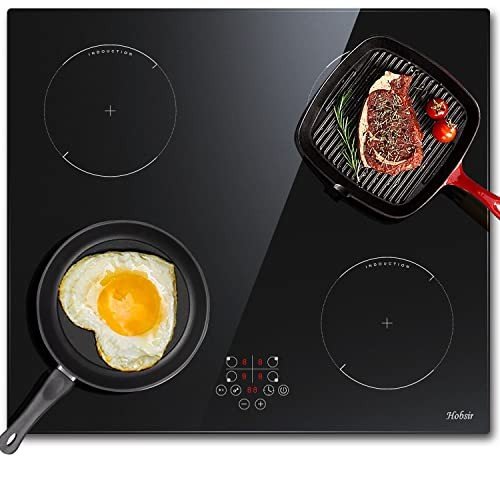Understanding Cookers and Hobs: A Comprehensive Guide
Cooking is an important element of life, and the development of kitchen appliances plays a significant function in how effectively and successfully people prepare their meals. Among Ovens & Hobs , cookers and hobs are 2 of the most essential instruments discovered in modern kitchens. This article explores the distinctions between cookers and hobs, examines their numerous types, and provides insights on their functions, upkeep, and selection process.
What are Cookers and Hobs?
Cookers
Cookers are detailed kitchen appliances designed for cooking tasks, usually integrating an oven and a hob. They can be found in various setups and types, catering to varied cooking requirements and choices.
Hobs
Hobs, on the other hand, are more concentrated devices mainly used for boiling, frying, and other stovetop cooking methods. Hobs can be standalone units or an integrated part of bigger cookers.
| Function | Cookers | Hobs |
|---|---|---|
| Function | Integrates oven and hob | Stovetop cooking only |
| Style | All-in-one unit | Separate system or integrated |
| Types | Electric, gas, double fuel | Gas, electric, induction |
| Setup | Enables more flexibility | Built into the countertop |
| Rate Range | Usually greater | Varies commonly |
Types of Cookers
1. Electric Cookers
Electric cookers utilize electricity as their main source of power. They typically include a built-in oven and multiple cooking zones on the hob.
Benefits:
- Even heat circulation
- Available in numerous styles (e.g., freestanding, integrated)
2. Gas Cookers
Gas cookers work on natural gas or melted petroleum gas (LPG). They provide immediate heat control, making them a preferred among expert chefs.
Benefits:
- Instant heat adjustments
- More inexpensive functional costs
3. Dual Fuel Cookers
Double fuel cookers combine the heat of gas with the performance of electric ovens. Ovens Online enables the very best of both worlds, supplying control and consistent outcomes.
Benefits:
- Flexible cooking options
- Precise control over stovetop cooking and baking
4. Range Cookers
Variety cookers are bigger and more powerful than standard cookers, including several ovens and hobs for comprehensive cooking jobs.
Advantages:
- Ideal for large households or cooking for occasions
- Provides numerous cooking choices in one appliance
Types of Hobs
1. Gas Hobs
Gas hobs are favored for their quick heating and strong flame, making them exceptional for searing and stir-frying.
Benefits:
- Instant heat and control
- Suitable with any kind of pots and pans
2. Electric Hobs
Electric hobs heat up using electric coils or glass-ceramic surface areas, providing a contemporary look and efficient cooking.
Advantages:
- Easier to clean up
- Uniform surface appropriate for numerous pots and pans
3. Induction Hobs
Induction hobs utilize electromagnetic fields to heat pots and pans straight, providing quick and energy-efficient cooking.
Benefits:
- Safe (cool surface after getting rid of pots and pans)
- Energy-efficient and precise
4. Solid Plate Hobs
These conventional hobs utilize strong electric plates that heat up slowly.
Advantages:
- Rugged and durable
- Usually more economical than other types
Secret Features to Consider
When selecting a cooker or hob, several functions need to be considered:
- Size and Space: Consider the size of your kitchen and the amount of work space required.
- Cooking Style: Choose based on preference-- gas for control, induction for effectiveness, etc.
- Performance Ratings: Look for energy-efficient models to lower utility bills.
- Ease of Cleaning: Smooth surface areas help with easy upkeep.
- Safety Features: Automatic shutoff, flame failure devices, and child locks improve security.
Upkeep Tips
Keeping cookers and hobs extends their life-span and ensures safe operations.
- Routine Cleaning: Wipe down surfaces after use to avoid buildup.
- Examine Seals: Check oven door seals regularly for wear and tear to maintain efficiency.
- Service Regularly: Schedule expert servicing at least when a year.
- Suitable Cookware: Use cookware appropriate for your hob type to prevent damage.
Regularly Asked Questions (FAQs)
What is the difference between a cooker and a hob?
A cooker combines an oven and hob in one system, while a hob is usually a standalone appliance for stovetop cooking.
Do I require an expert to install a gas cooker or hob?
Yes, expert installation is advised for gas devices to make sure safety and compliance with regional regulations.
Can I use any kind of cookware on induction hobs?
Induction hobs need magnetic cookware. Stainless steel or cast iron pots work best. Non-magnetic products will not heat up.
Are electric cookers more energy-efficient than gas cookers?
While both have advantages, electric cookers tend to be more energy-efficient total, especially with modern, high-efficiency designs.
How typically should I clean my cooker or hob?
It is best to clean them after each usage and perform a thorough cleaning weekly to prevent accumulation and residue.
Understanding the distinctions, features, types, and maintenance pointers for cookers and hobs is vital for any home cook. By choosing the ideal device fit to their cooking needs, users can enhance their cooking experience, making meal preparation an effective and pleasurable chore. Whether selecting the instant control of gas or the smooth performance of induction, picking the appropriate cooker or hob can lead to a significantly boosted kitchen experience.

